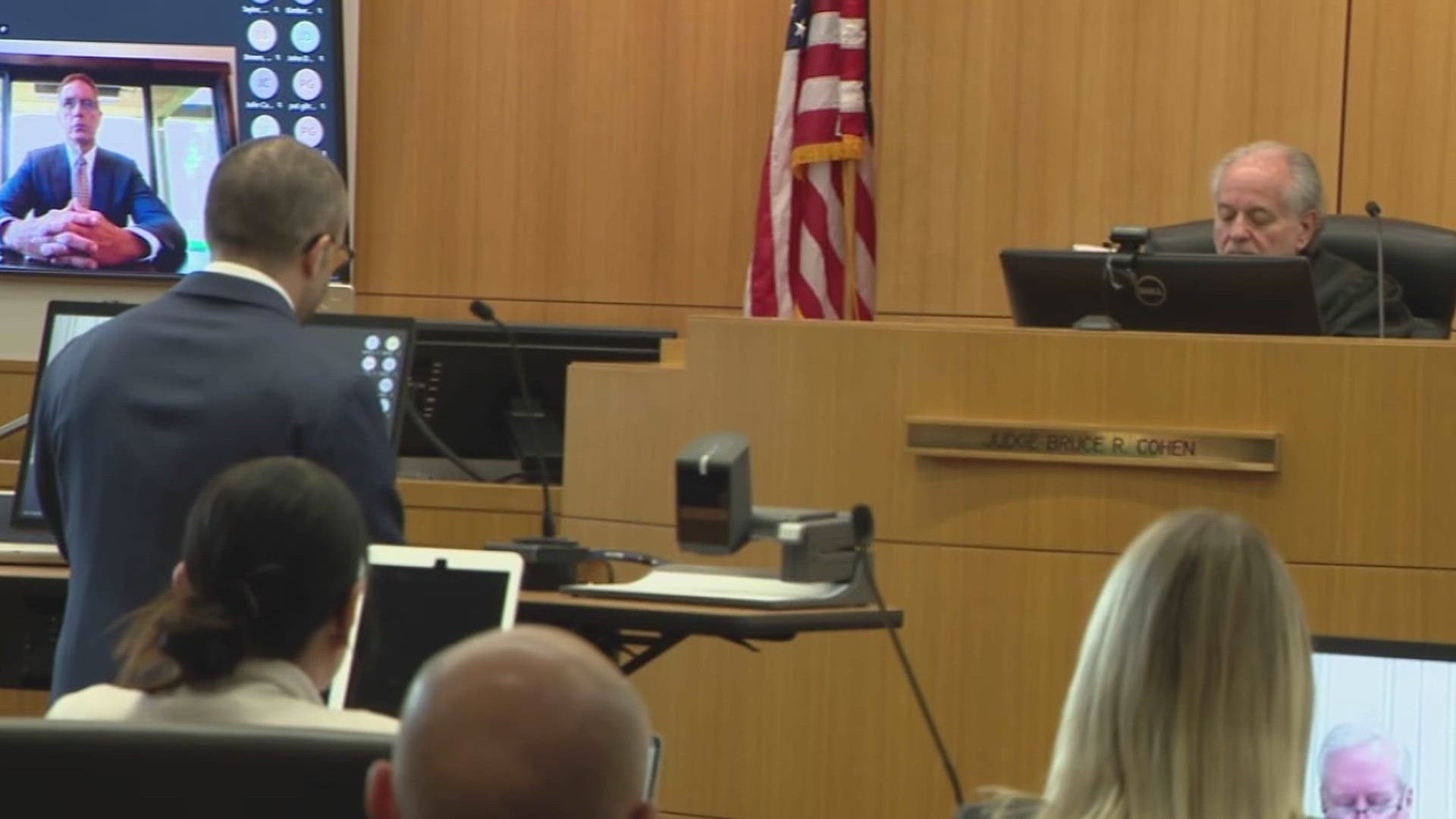PHOENIX — Arizona's "fake electors" case is now scheduled for trial no sooner than Jan. 5, 2026, six years after an organized attempt by Donald Trump's Republican allies to throw out Democrat Joe Biden's victory in 2020.
Maricopa County Superior Court Judge Bruce Cohen set the trial date Monday during a six-and-a-half-hour court hearing that brought together the 16 remaining defendants in the case in person or virtually.
VERSIÓN EN ESPAÑOL: Caso 'electores ficticios': Juicio programado casi 6 años después de la presunta conspiración
The hearing resumes at 10:30 a.m. Tuesday.
Prosecutors had sought a trial date in May or June 2025. Defense lawyers pushed for the end of next year - one of them requested November 2026.
The trial could involve 80 witnesses and take up to three months. Appeals could push back the January 2026 start dates.
Cohen revealed that he wouldn't be presiding at the trial. He plans to retire next year.
There is also a possibility that Democratic Attorney General Kris Mayes won't be overseeing the prosecution should it extend past the final year of her four-year term in 2026.
The investigation got off to a late start.
Mayes launched the probe shortly after taking office in 2023. Her predecessor, Republican Mark Brnovich, had declined to investigate the fake electors scheme during his final two years in office.
Shortly after Brnovich left office, Mayes released documents revealing he concealed his investigators' findings that there was no evidence to support claims of election fraud in Maricopa County during the 2020 election.
The 16 defendants, including former Trump lawyer Rudy Giuliani and White House Chief of Staff Mark Meadows, have each been charged with nine felony counts of fraud, forgery and conspiracy.
Ten of Trump's 11 Arizona electors for the 2020 election are among the defendants. They are accused of signing a phony document on Dec. 14, 2020, that presented themselves as the duly elected Arizona electors.
Two defendants, former Trump lawyer Jenna Ellis and elector Loraine Pellegrino, have struck plea deals. Meadows has a hearing next month on his bid to move his case to Federal Court.
Arizona is one of five states where criminal charges have been brought against Trump electors.
Cohen heard arguments on two motions to dismiss the charges, as well as a motion by Mayes for an order protecting the identities of the grand jurors.
Dennis Wilenchik, attorney for elector and former U.S. Senate candidate Jim Lamon, contended that Lamon signed the bogus elector certification only as a contingency, in case the courts struck down Biden's victory.
"This court's duty is to stop this process now," Wilenchik said. "Look at the hard facts that were presented to the (grand) jury, the hard law, and there's no rebuttal to it."
Wilenchik said Lamon had been assured by then-Arizona Republican Party Chair Kelli Ward that lawyers in Washington, D.C., had signed off on the document.
Ward is also a defendant in the case.
At one point Cohen rebuked Giuliani's attorney, Mark Williams of Nogales, for suggesting the prosecution was politically motivated - a Democratic attorney general obtaining indictments against Republicans.
"What bearing does that have on anything?" Cohen said. "I'm just trying to leave the noise outside the courtroom and let the law rule the court."
ARIZONA POLITICS
Get the latest Arizona political news on our 12News YouTube playlist here.

